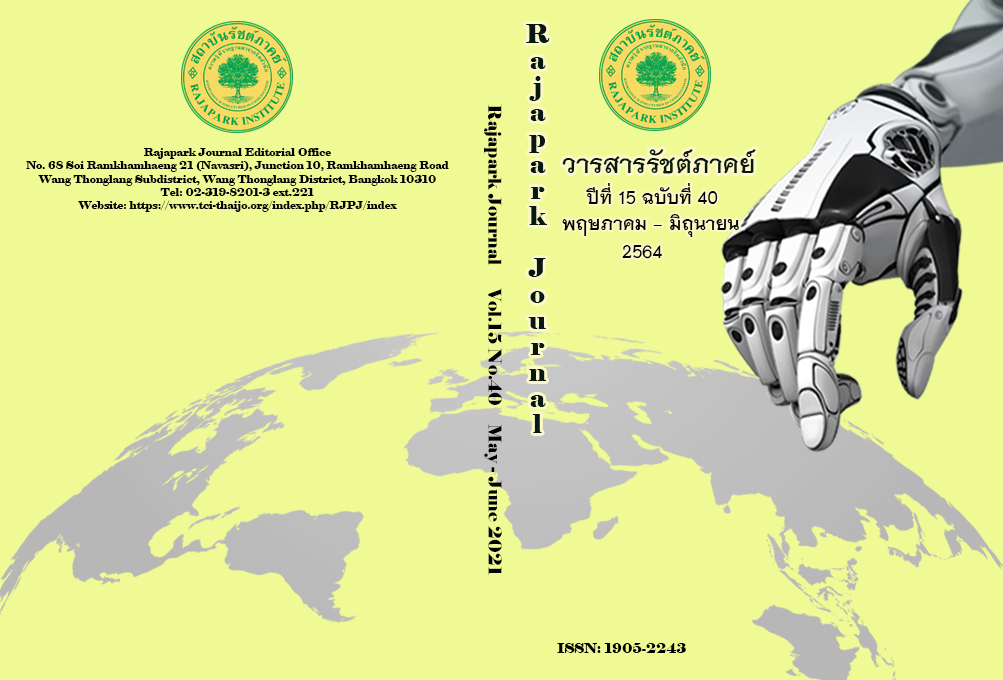Analysis of Knowledge Management Components of Local Wisdom of Educational Institutions in Phra Nakhon Si Ayutthaya Primary Educational Service Area
Main Article Content
Abstract
The purposes of this study were 1) Study the level of knowledge management and local wisdom of educational institutions in Phra Nakhon Si Ayutthaya Primary Educational Service Area and 2) To study the elements of knowledge management and local wisdom of educational institutions in Phra Nakhon Si Ayutthaya Primary Educational Service Area. A questionnaire was used to collect data from 380 teachers in the Ayutthaya Primary Educational Service Area. selected by using a stratified random sampling method from ninety-four schools in the Ayutthaya Primary Educational Service Area. Data were gathered from questionnaires and analyzed by frequency, percentage, mean, standard deviation exploratory factor analysis, and confirmatory factor analysis statistics. The results of the study are the following: Condition of Knowledge Management Local Wisdom of the Educational Institutions in Phra Nakhon Si Ayutthaya Primary Educational Service Area was at a high level. First is the field of application knowledge is Creation knowledge, Exchange knowledge, Seeking knowledge, Processing knowledge into categories, Transfer knowledge, Determination knowledge, and Storage knowledge in order. The results of the confirmation element analysis revealed that the components of local wisdom knowledge management of educational institutions in the Ayutthaya Primary Education Area were as follows: Knowledge determination of local wisdom, Recording and storing knowledge of local wisdom, The quest for knowledge local wisdom, Pride in work, Linking and Transferring local of wisdom knowledge, Exchange of knowledge of local wisdom, recording and Storing knowledge of local wisdom respectively. The weight of the element between 0.50-0.80
Article Details
Views and opinions appearing in the Journal it is the responsibility of the author of the article, and does not constitute the view and responsibility of the editorial team.
References
Bertels, T. (2002). What is Knowledge Management?. The Knowledge Management Forum. Retrieved from http://www.km-forum.org/what_is.htm
Chantasoon, S. (2010). Wisdom and Rural Development. Bangkok: Wisdom Foundation.
Chompoolong, N. (2005). Local knowledge to learning (revised version). Maha Sarakham: Apichart Printing.
Department of General Education. (2011). Integrating Local Wisdom in Educational Institutions. Bangkok: Ministry of Education.
Drucker, P. F. (1999). The Practice of Management. New York: Harper & Row.
Jegede, O. J. (1995). Collateral Learning and the Eco-Cultural Paradigm in Science and Mathematics Education in Africa. Studies in Science Education, 25, 97-137.
McElroy, M. (1999). The Knowledge Life Cycle. Present at the ICM Conference on KM. Miami, FL.
Meyer, M. H., & Zack, M. H. (1996). The Design and Implementation of Information Products. Sloan Management Review, 37(3), 43-59.
Office of the Basic Education Commission (2018). Management of Students' Opinions in Educational Institutions. Bangkok: Ministry of Education.
Phucharoen, W. (2010). Modern Executive Machine for Sustainable Development. Bangkok: Ariyachon.
Rossett, A. (2001). The ASTD e-Learning Handbook: Best Practices, Strategies, and Case Studies for an Emerging Field. New York: McGraw-Hill.
Saihoo, P. (2011). Cultural Development Based on Local Wisdom and Potential of Community. In the Academic Seminar on Folk Wisdom. Bangkok: Office National Culture Commission.
Sanyawiwat, S. (2010). Community Development. Bangkok: Thai Wattana Panich.
Senge, P. M. (1994). The Fifth Discipline Fieldbook: Strategies and Tools for Building a Learning Organization. London: Century Business.
Thammasit, K. (2014). Knowledge Management in Schools. Bangkok: Ministry of Education.
Tiwana, A. (2000). The Knowledge Management Toolkit: Practical Techniques for Building Knowledge Management System. Upper Saddle River, NJ: Prentice Hall.
Wasi, P. (2013). Creation of Thai Wisdom for Development. Journal of Community Development, 5(5), 75.
Wiig, K. M. (1993). Knowledge Management Foundation. Arlington, TX: Schema.


